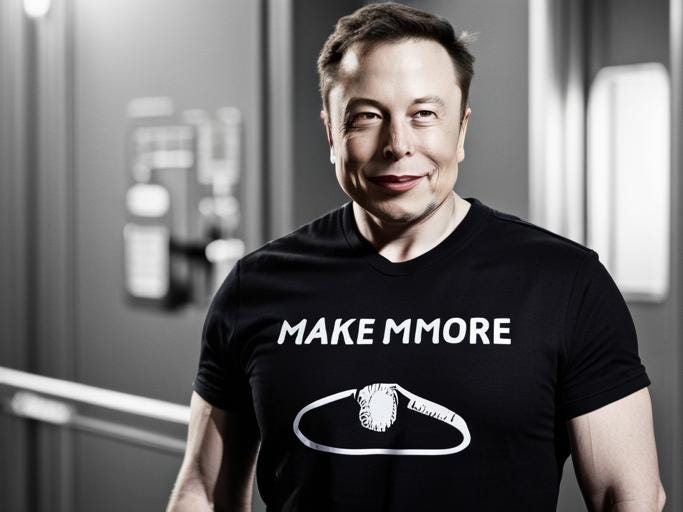Diversity in Adversity? The Debate Surrounding DEI in the USA
DEI— Diversity, Equity and Inclusion— Debate Rages in USA: Implications for India.
Diversity in Adversity? The Debate Surrounding DEI in the USA
Introduction
The United States has been engulfed in an impassioned debate over Diversity, Equity, and Inclusion (DEI) initiatives, particularly in the wake of significant societal events and the proliferation of social media as platforms for public discourse. Personalities like Bill Ackman— the billionaire American hedge fund manager— and Elon Musk have notably intensified this debate, especially through their active participation on Twitter. The discourse spans various societal facets, including racism, reverse racism, anti-Semitism, and the broader notion of "wokeness."
The Crux of the DEI Debate
DEI programs, meant to foster a more inclusive and equitable society, have been part of corporate and educational institutions for years. However, the debate around them has recently become more heated. Critics argue these initiatives lead to reverse racism and other unintended negative consequences. Proponents, however, view DEI as a path to a more just and productive society.
Ackman, Musk, and Cuban: Voices in the DEI Debate
Bill Ackman's Critique: Renowned billionaire investor Bill Ackman has recently leveled criticism against DEI initiatives, linking them to an uptick in antisemitism at Harvard and advocating for changes in leadership. Ackman notably asserted that DEI is “the root cause of antisemitism at Harvard,” casting a spotlight on the potential repercussions of these programs.
Elon Musk's Position: Subsequent to Ackman, Elon Musk vehemently criticized DEI, labeling it as discriminatory. Musk echoed and amplified Ackman's sentiments by reposting his comments and further adding, “DEI is just another word for racism,” thereby intensifying the debate with his influential stance.
Mark Cuban's Defense: In a sharp contrast, billionaire Mark Cuban, a film producer and TV personality, robustly defended DEI. Through an extensive Twitter thread, he advocated for the benefits of diversity in businesses, emphasized that equity involves recognizing and capitalizing on individual differences, and stressed that inclusion significantly boosts overall productivity.
Mark Cuban's Detailed Argument for DEI
Mark Cuban emphasizes the business advantages of DEI:
Diversity: Successful businesses venture beyond the usual to discover talent that propels them forward. Acknowledging that individuals from varied backgrounds are often overlooked, inclusive hiring can uncover more qualified candidates, benefiting companies that embrace diversity. In a country with diverse demographics, a representative workforce fosters trust and connection, enhancing business rapport with its stakeholders.
Equity: Understanding equity means recognizing that equal treatment doesn't equate to identical treatment. It's about positioning individuals for success by valuing their unique strengths and needs. While the concept is straightforward, its implementation is complex and requires adept management. Without careful execution, efforts to promote equity can lead to tension and dissatisfaction. This core business principle is essential for fostering a harmonious and productive work environment.
Inclusion: A favored maxim states, "Great employees alleviate the stress of their colleagues." Exceptional companies foster environments that minimize undue stress, thereby enhancing productivity. This essence of inclusion is about ensuring all employees, regardless of their identity or background, feel valued and comfortable in their workplace, enabling them to thrive in their roles. While creating such an inclusive atmosphere is challenging, it is fundamental for a healthy and dynamic work environment.
Cuban likens DEI to healthcare in companies; often overlooked but crucial for overall efficiency and employee well-being.
The Resignation of Harvard's President
The resignation of Harvard President Claudine Gay, the first Black woman to hold the position, amid plagiarism charges, adds a nuanced dimension to the DEI debate, highlighting the intricate relationship between leadership, ethics, and diversity in institutions. Critics argue her ascent to Harvard's presidency was influenced by her race, while supporters contend that her forced resignation was disproportionately due to her gender and ethnicity. This controversy underscores the ongoing tension and high stakes in discussions about equity and representation.
Implications for India
India, with its rich diversity and policies of reservations for SCs, STs, and other groups, can derive valuable insights from this debate. While DEI initiatives and other forms of affirmative action strive for inclusivity and fairness, it is imperative to maintain a balance to prevent them from unintentionally compromising the principles of equality and efficiency they aim to enhance. Critics contend that overly expansive affirmative action may conflict with the essence of equality, a fundamental tenet of the Indian Constitution.
Summing Up: The Delicate Balance of DEI
DEI, while noble in intention, is complex in execution. It's crucial for societies and organizations to strive for inclusivity and equity but equally important to ensure that these efforts don't result in new forms of discrimination or inefficiency. As the debate rages on in the USA, it offers valuable insights for global observers, including India, on navigating these challenging but essential societal goals.







